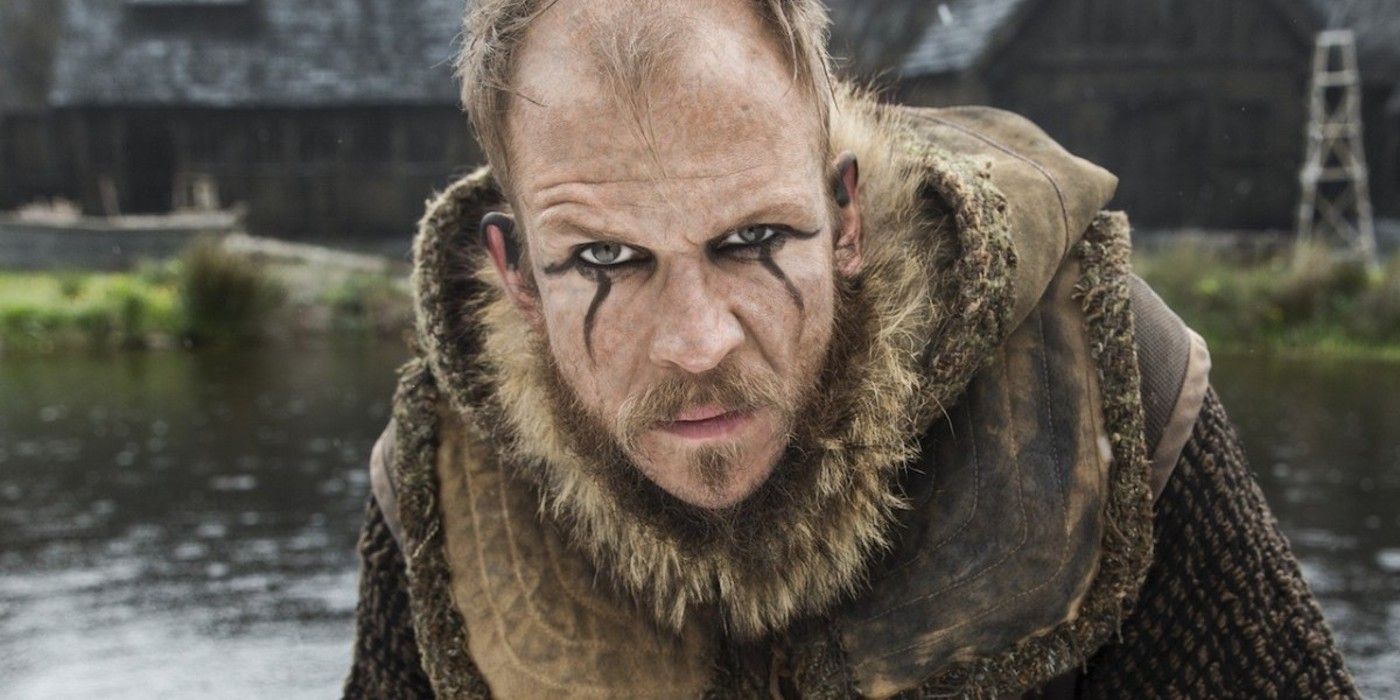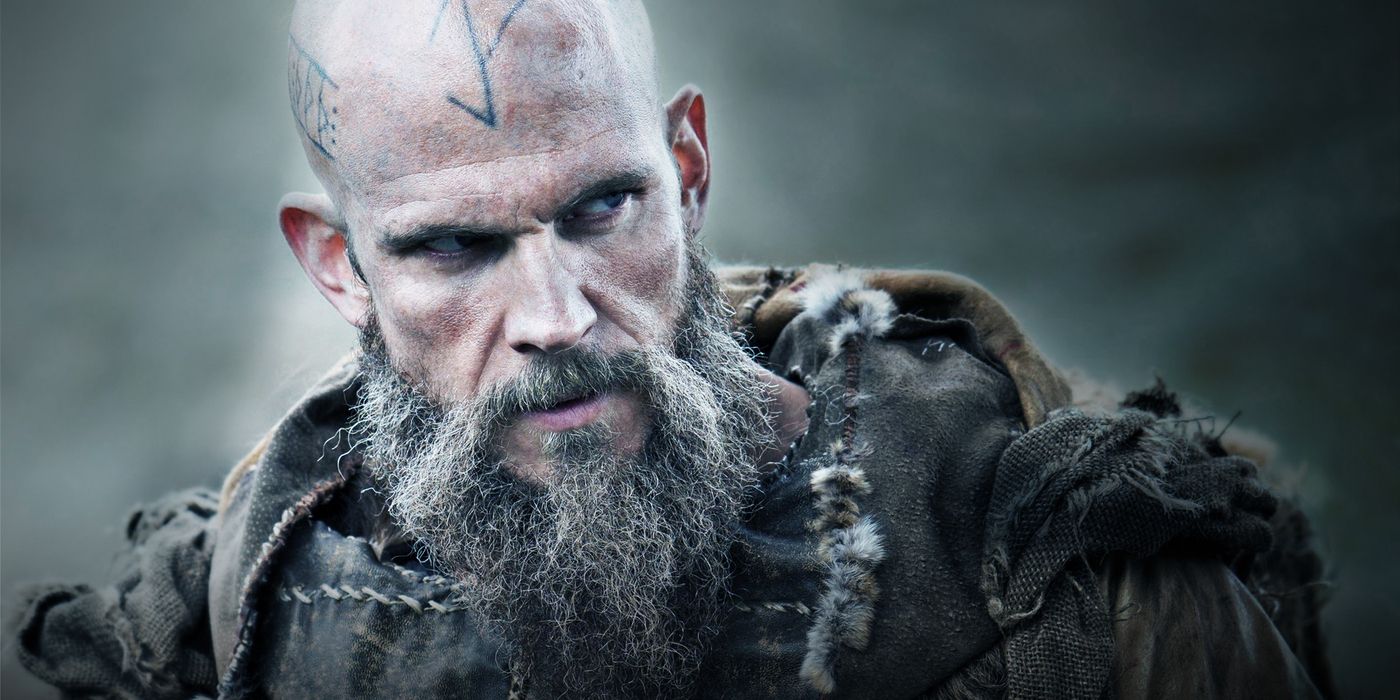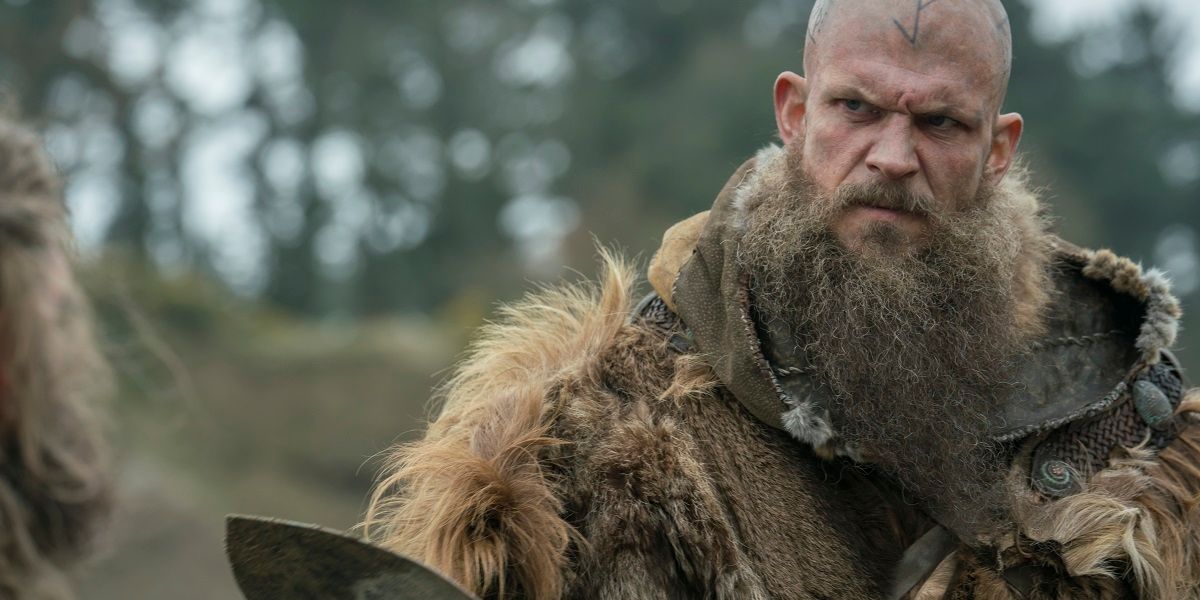Floki Vilgerðarson was a popular character in History Channel's Vikings because of his amusing -- albeit strange -- performative behavior. He was also known for playing tricks and scheming intricate plans in order to defeat his enemies. Because of that characterization on the show, Floki was often compared to the Norse God of Mischief, Loki (not to be confused with Marvel's antihero whose show is about to start filming Season 2 after hiring the directors from Moon Knight).
A carpenter who specialized in making boats, Floki had a crucial role in helping Ragnar Lothbrok start his legendary conquests before Ragnar's terrible death. While he frequently appeared with a smile on his face, he was capable of great horror that would become apparent to his enemies. His fighting style was also unique because he preferred a knife and a hatchet in order to use his speed and take his opponent by surprise. Floki had a deep devotion to the Asgardian pantheon and his hatred for Christianity, which he saw as a great danger to his faith. But what if that devotion to the gods was because he was a god himself?
Floki's spirituality was featured prominently in Vikings. He was driven and affected the most by his beliefs, perceiving seemingly ordinary events as signs from his gods. He was also frequently troubled by visions, which he saw as manifestations of the Norse deities. For Floki, his religion was a factual ideology that defined his entire reality. His intense commitment to the gods gave him an almost otherworldly quality, as if he had some greater knowledge about the world that no one else had... which would be fitting for a god.
Floki's distinct aloofness and his scheming were similar to the characterization of Loki as a trickster god often hiding amongst mortals, which could have been an indication that Floki was the God of Mischief in disguise or his descendant. Supporting that idea was the fact that throughout the show, several other characters noted Floki's similarity to Loki. Floki went to meet the Seer of Kattegat, an oracle and religious figure, during Season 4 -- and while the custom was that each visitor would lick the Seer's hand as a sign of respect, when Floki visited him, the Seer licked Floki's hand instead. That moment was taken by Vikings fans as the Seer recognizing Floki's godly nature.
Vikings also made more overt connections between Floki and Loki. Floki and his wife Helga named their daughter Angrboda, which was the name of Loki's former wife. When Ragnar imprisoned Floki in a cave, Helga held a bowl over his head to prevent water from dropping on his face, which was a direct reference to Loki's imprisonment by Odin. The same myth was also referenced after Floki found a cross in Iceland; he became distraught by the Christian symbol and started screaming, which caused the cave to collapse with him in it, In the myth, it was said that Loki's cries also made the earth tremble.
During Season 6 -- which was also the last season -- Floki mysteriously appeared alive in Newfoundland. This miraculous and unexplained reappearance may also indicate that he had some sort of divine power within him. While this Vikings theory will never be proven or disproven with the show coming to an end, if Floki wasn't Loki in disguise, his story had a lot of things in common with the adventures of the God of Mischief.



